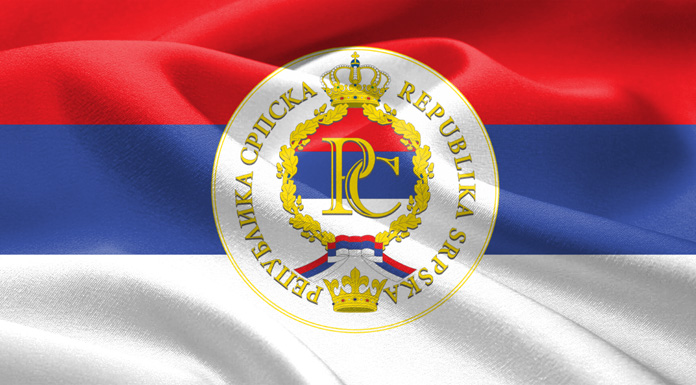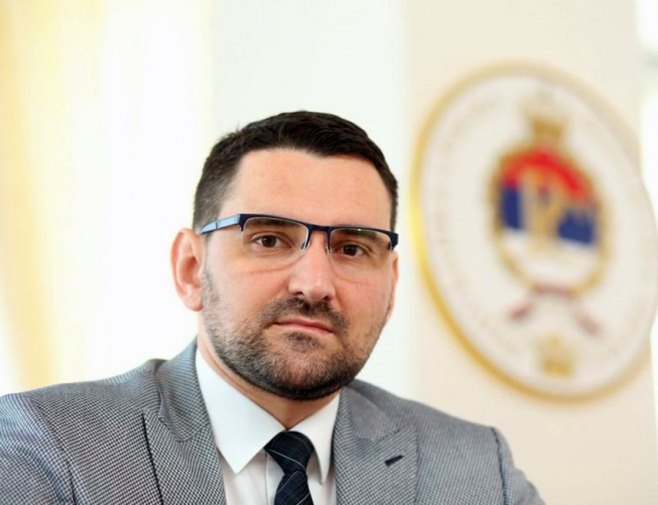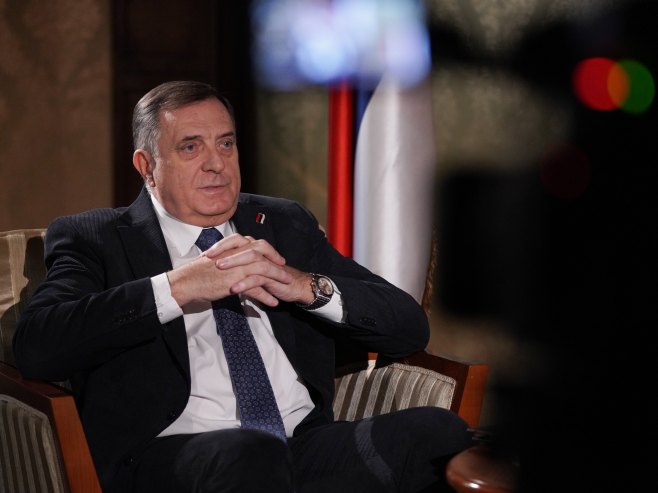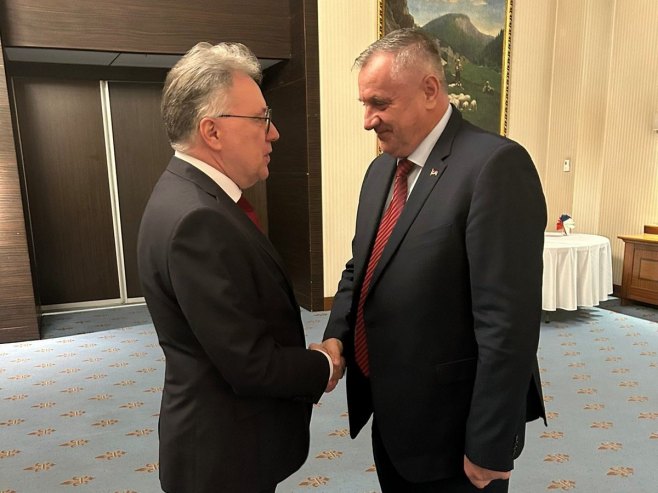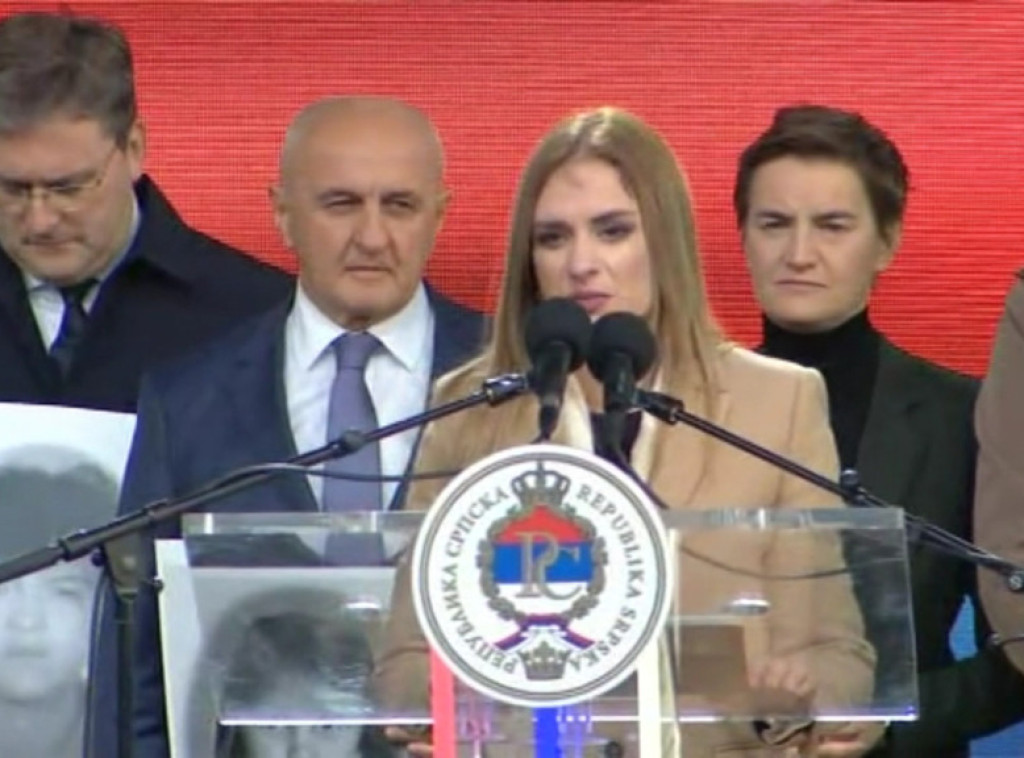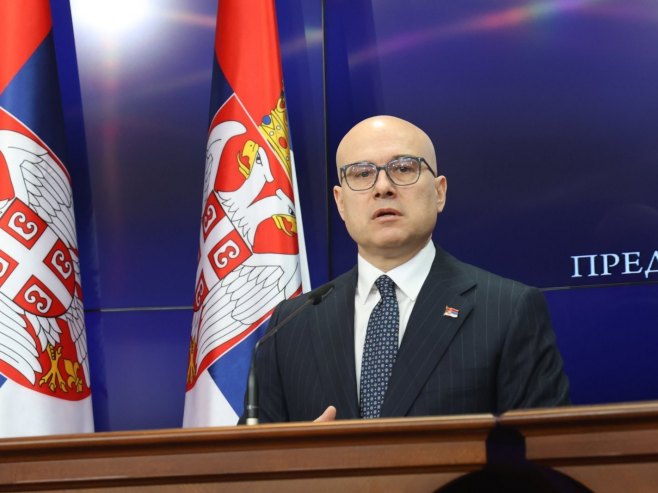Its international standing is on the rise, as stated by international law expert Vitomir Popović.
“It’s crucial to safeguard Republika Srpska’s assets, as they represent a cornerstone of its statehood. To all those who don’t hold affection for Republika Srpska and attempt to challenge it on Republic Day (January 9), we send a clear message of our love and commitment to safeguard it,” expressed Popović.

He underscored that the leadership of Republika Srpska, led by President Milorad Dodik, has recognized and vehemently opposed imminent threats. Popović stressed that Serbs celebrate Republic Day as Republika Srpska is a guarantor of the survival of Serbs residing on the left bank of the Drina River.
“We’ve sacrificed Serb lives for its creation and existence. Hence, we bear a greater responsibility to protect it, ensuring that Republika Srpska remains an eternal category,” asserted Popović.
He highlighted Republika Srpska’s international positioning and its signatory status to the Dayton Peace Agreement.
“However, Republika Srpska was established long before, even preceding the onset of the war. We defended it then and have continued to do so peacefully for over three decades. It has the potential to achieve full statehood in the future,” emphasized Popović.
Popović stressed the significance of the Dayton Peace Agreement, not only for Republika Srpska but also for the Federation of Bosnia and Herzegovina (FBiH), which emerged later in 1994 through the Washington Agreement.
“Hence, the Dayton Peace Agreement holds exceptional importance for Serbs, Croats, and Muslims, and it would be beneficial if collective efforts were made to uphold it. If separation were to occur, and if Republika Srpska were to pursue independence, it should be a peaceful process,” suggested Popović.
He emphasized that the Dayton Peace Agreement essentially implies achieving consensus and agreements by respecting the principles of equality and constitutiveness among all three constituent peoples, as well as others. It signifies complete equality between Republika Srpska and the FBiH.
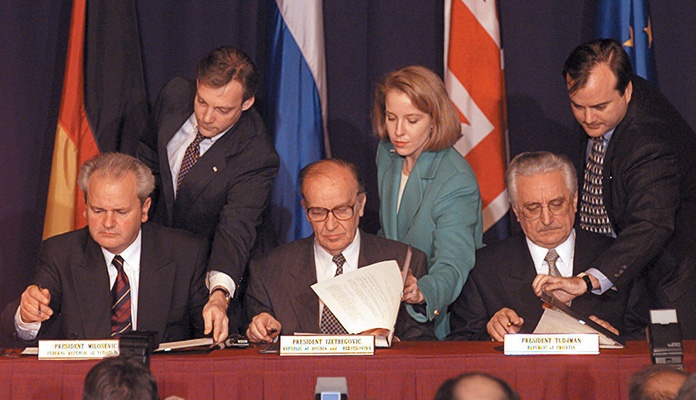
“Republika Srpska practically held a position on the international scene immediately after its formation,” stated Popović, recalling numerous international conferences dedicated to resolving conflicts in which Republika Srpska played a significant role.
He noted that Republika Srpska, which is now widely discussed globally, has signed numerous bilateral economic agreements, including ones with China and Russia.
“There are foreign investments from EU countries, Canada, and the USA. It’s evident that Republika Srpska is a contributor to this international order. Consequently, Republika Srpska will have a significant prospect, and every celebration of Republic Day, its anniversary, aims to strengthen its international position and internal structures,” said Popović, adding that marking January 9 serves that purpose.
He clarified that these aspects constitute the elements of statehood, and Republika Srpska exercises its authority with its population.
“It effectively governs within its territory and has political and economic relations with numerous countries, albeit lacking UN membership. I believe that when the time comes, this condition will be fulfilled,” stressed Popović.
He highlighted Republika Srpska’s economic and educational systems, essential components of its statehood.
“Removing assets from Republika Srpska would significantly diminish its statehood,” cautioned Popović.
He warned that such an action would be highly dangerous and risky, acknowledging that the leadership of Republika Srpska has recognized this, which is a positive sign.
Stripping Republika Srpska of its assets would regress us to the period of the so-called Republic of BiH, centralized and unified, with all decisions made in Sarajevo.
We must not allow that, and it should be given special attention. We must strive for the highest level of unity on this matter,” emphasized Popović.
He emphasized that Serbs must unequivocally state their ownership and independence, asserting that celebrations such as Republic Day should not be dependent on Christian Schmidt, the so-called imposed High Representative, who lacks legitimacy derived from the UN Security Council Resolution in line with Annex 10 of the Dayton Peace Agreement.
“We must make that clear. If the two largest countries in the world, Russia and China, did not give their consent, Schmidt lacks legitimacy as per the Resolution of the Security Council, in accordance with Annex 10 of the Dayton Peace Agreement,” added Popović.
He pointed out that Schmidt’s current actions hold no legal weight and should not yield any legal consequences.
“We must not take excessive risks, and it’s crucial to be rational and cautious to preserve Republika Srpska,” concluded Popović.
He stressed that Republika Srpska should continue to develop and grow stronger.
“Let’s bolster Republika Srpska economically, expand our numbers, build its infrastructure, and create conditions for Republika Srpska as an independent state. That day will come, and it will be a day of special celebration. It’s our obligation to work towards that.”
Source: RTRS



